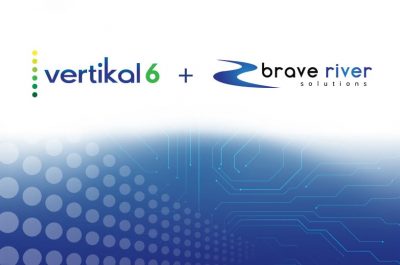All organizations need a software solution to achieve their most efficient business operations. Since every business is different, some are best fit with a commercial software product, while others with a custom software solution. If your organization is struggling with making a selection, you’re not alone. To make the most informed decision, it’s important to understand:
- Your business’s unique needs
- The differences between custom software and commercial software
Commercial Software
With commercial software (AKA prepackaged software, commercial off-the-shelf software, or COTS) you purchase a license to install the software. A popular example is Microsoft Office.
Shelf software can only be as custom as the company who developed it allows, and any additional features must be added in. For example, your eCommerce product page may not support a related products section if it’s not an included feature or is impossible to add.
If you’re using open source software – you’ll need to be extremeley technical, have an in-house developer, or the budget to outsource one. Depending on your industry and business processes, this type of software application may or may not be your best option.
Commercial Software Pros
Low Upfront Costs
Commercial software is designed to be licensed instead of sold. You’ll save money on the heavier initial upfront costs that comes with a custom software development project.
Popularity
Employees may already know how a popular software product works. And the product’s many other users will be reporting bugs and making enhancement suggestions. You’ll be able to assess the product by reading the reviews, and if you can’t, you can rely on the company’s reputation.
Time
A strong advantage of commercial software is the ability to install and use it in real time. If you’re in a rush, commercial software is best for you.
Custom software development services are a much longer process. Project managers take the time to work with you to understand the scope of the project and then schedule/plan the project with software developers. Testing and other important processes are completed to ensure you receive the most powerful software solution possible.
Commercial Software Cons
Hidden Costs
The low upfront cost of commercial software isn’t the only price you’ll pay. Beware of how the many upgrades, service fees, yearly maintenance fees, and installation fees will add up in the long run. Per seat licenses can also become a significant expense and you’ll pay more as your business grows.
An additional cost is that the software programs don’t adjust to your business, your business must adjust to the software. Training employees, slowing productivity, and missing functionalities can become costly. It’s also not uncommon that organizations purchase these products only to discover that it doesn’t work for them.
Popularity
The widespread use of commercial software has its downsides. Due to its popularity, competitors know what you can do with your software and what your limitations are.
Cyber criminals have an easier time hacking this software because they’ve seen it before. They don’t have to spend time learning new software, and consequently, it’s targeted much more frequently.
Dependency
Organizations using commercial software are at the mercy of the company that developed it. They’re directly affected by their terms and conditions of use, pricing, and state of their business. And if the company stops selling the product, you’re forced to change providers.
Custom Software
Many businesses differ greatly in their processes and requirements. A universal software product doesn’t really exist for them. This need for custom software, or proprietary software, isn’t new.
If it’s a good fit, custom software can increase efficiency and help you achieve your business goals faster. In turn, you’ll see an increase in revenue more frequently. Ditching ready made software is the first step in gaining that momentum.
Custom Software Pros
A Personalized Solution
The major custom software advantage is that it’s tailored to your business’ specific requirements. A team of development experts work to deliver you a personalized product according to your requirements and specifications.
Scalability
As your business grows, so do your software requirements. A custom software development process allows your business to advance at its own pace. Without being limited by software, you’ll save time and money when it comes to scale.
Custom software enables your business to advance – which means you’re serious about your company’s growth. In addition, custom solutions avoid integration problems by fitting seamlessly within any organization’s software ecosystem.
Security
An undervalued element of having a custom software solution is the enhanced level of security. Cybercriminals have never seen your custom software before, and it has security features that specifically protects your data.
This is important for industries that deal with sensitive information like credit card payments, protected health information, and client data. You can better maintain your security systems and business reputation with custom software.
Custom Software Cons
Large Upfront Investment
Building a custom software product from the ground up means that you’ll face a larger upfront cost. The larger investment is considered a disadvantage by some but remember to consider what a commercial product will ultimately cost.
Choosing the Wrong Developer
Among the many custom software development companies, there are those that provide low-quality solutions. Do your research and protect yourself from losses down the road and ensure you get a software solution that meets your requirements.
Not only can choosing this cost you in that you receive a low quality or buggy software product, but you’ll be spending even more when you’re forced to hire someone to fix it or start over from scratch.
Time
Custom software development is not a fast process. This may not be the best option for your business. If you need a software solution quickly, remember that custom software is not as simple as installing a program and getting an instant benefit.
Even with the best custom software development company, it takes time to identify your organization’s processes and requirements. Be prepared to spend time gathering information to be sure that your custom solution is the best fit for your business.
To Sum It Up…
| Commercial | Custom | |
|---|---|---|
| Low Upfront Costs | ✔ | |
| Popular | ✔ | |
| Time | ✔ | |
| Personalized | ✔ | |
| Scalable | ✔ | |
| Secure | ✔ |
Long Story Short
Commercial software is like ordering from a menu while custom software is like having your own personal chef. It’s important to consider the advantages and disadvantages of both to make the best decision for your organization.
If your curious about software development or want to learn more about related services, check our our offers for custom software development.




